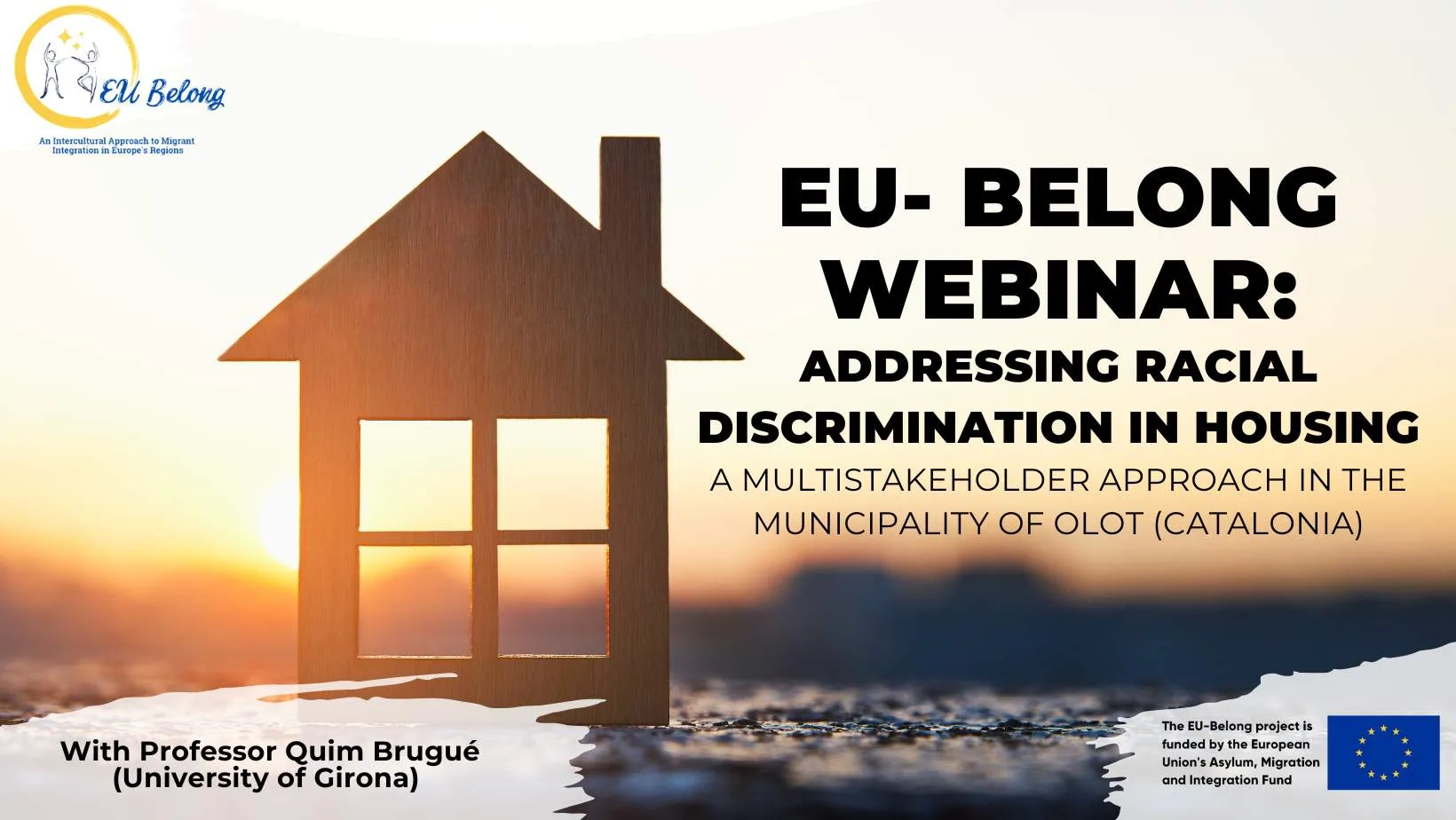 Share this!
Share this!On 23 November, the EU-Belong project hosted its first webinar, focusing on racial discrimination in access to housing through the experience of the Municipality of Olot, a mid-sized city in Catalonia, Spain. This session, held from 10:00 to 11:00 CET, invited participants from regions all over Europe to examine Olot’s approach and assess how intercultural strategies can help address these issues. The event provided a 30-minute interactive segment, allowing the almost 100 attendees to explore the challenges, enabling factors, and transferability of Olot’s model for addressing housing discrimination.
Professor Quim Brugué, a Political Science professor from the University of Girona, led the presentation, sharing Olot’s multi-faceted strategy to address racial discrimination against third-country nationals in the housing market. Olot’s approach focused on understanding the roots and effects of racially discriminatory practices, with an emphasis on intercultural dialogue and collaboration. Recognising an issue of race-driven discrimination in real estate, the municipality of Olot’s partnered with the University of Girona to analyse the problem, raise awareness, and seek solutions involving the community.

The municipality’s strategy placed significant emphasis on intercultural exchange, inviting participation from academics, real estate professionals, local organisations, and individuals affected by discrimination. By bringing these diverse groups together, Olot aimed to foster mutual understanding, facilitate knowledge-sharing, and create an inclusive environment for constructive dialogue. This approach proved essential in generating a range of practical solutions, which were then shared with the City Council as potential policy recommendations.
Throughout the process, regular meetings and dialogues supported by the University of Girona helped build trust and common ground among participants. These discussions served as a foundation for proposing actionable solutions that could benefit both policymakers and local communities, prioritising inclusive practices that could be applied beyond Olot. Professor Brugué highlighted how these collaborative efforts have helped shape Olot’s broader commitment to an intercultural approach, one that respects diversity while working to reduce discrimination.


Laura Sentis Margalef, EU-Belong Project Officer at the Department for Equality and Feminisms in Catalonia, moderated the session, guiding participants from across Europe in discussing Olot’s approach and sharing ideas on applying similar intercultural strategies in their own municipalities.
This inaugural webinar offered a practical look at how inclusive, community-based approaches can help address racial discrimination in housing. By engaging a wide range of stakeholders and focusing on intercultural collaboration, Olot’s model provided participants with valuable insights into creating inclusive, equality-driven housing policies in diverse communities across Europe.
About EU-Belong
EU-Belong is a 3-year project co-funded by the Asylum, Migration and Integration Fund of the European Union. Coordinated by the Assembly of European Regions (AER) within the framework of its Intercultural Regions Network (IRN), it is implemented in partnership with ten regional authorities from seven European countries: Arad and Timiș in Romania; Catalonia and Navarra in Spain; Donegal in Ireland; Emilia-Romagna in Italy; Leipzig in Germany; Pomerania and Poznan in Poland; Salzburg in Austria; and two technical partners: ART-ER Attrattività Ricerca Territorio and Istituto Economico Cooperazione Internazionale (ICEI).
Stay up to date with all updates by following EU-Belong on X/Twitter @EU_Belong.
For questions, contact Emanuela Pisanó, EU-Belong Project Manager at [email protected]
